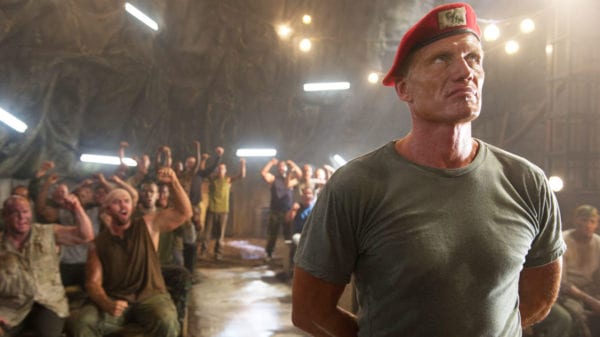Tom Jolliffe looks at the long rumoured remake of Maniac Cop…

Hands up who’s seen Maniac Cop… Okay, a fair few cult movie enthusiasts of a certain age. Bruce Campbell and Tom Atkins facing off against a vengeful, presumed dead ex-cop, played by the late, most granite jawed actor in history, Robert Z’Dar. It’s pure exploitation B picture. Low budget, but kind of cool. It made few waves on the big screen, but was particularly popular on video. Two sequels of increasingly dwindling quality followed.
Then a few years back, the divisive Nicolas Winding Refn decided the film needed rebooting. Of course, it would be within his own inimitable style and self-belief. It seemed at one juncture he might direct, even though the original feels so inherently un-Refn (though his films have a distinct exploitation feel, dressed up in arthouse, which to some works and to others, very much does not). How do you take what is a culty, B-movie romp, lacking in originality with a tongue in cheek flair, and inject more artistry and intensity (we assume)? Well you look at a man who has done similar.
Let’s look at Universal Soldier as an example. Jean-Claude Van Damme and Dolph Lundgren facing off in a film owing a lot to RoboCop and Terminator. It’s fun, it’s silly, it’s goofy, and it’s got a focus on stunts and fisticuffs. A poor sequel and two near forgotten TV-movie reboots followed (one of which oddly starred Burt Reynolds). Then quite some time later, Universal Soldier: Regeneration followed. Director John Hyams (son of Peter) reinvigorated the franchise, by taking it in wild new directions. Whilst, due to the low budget not allowing to maintain Van Damme for a whole shoot, it kind of lacks a strong protagonist, it does interesting things with Van Damme’s character, and even more interesting things (inspired by Blade Runner) with Dolph Lundgren’s returning Andrew Scott (in a scene stealing third act support role). The film opens with one of the best car chases of the last decade. Then the film’s remaining run-time is filled with crunching fights, nice visuals, a John Carpenter-esque synth score and a particularly destructive battle between Van Damme and Lundgren which makes the fight in the first film look like an intense game of pat-o-cake.
It received better critical reviews than the first and played a few festivals. Among fans of Van Damme in particular, the reception was middling. Despite the great action, there wasn’t a mass appreciation for the avenues that their hero, Luc Devereaux was taken. Nor did they like the fact his role isn’t as central as the first film. So you’ve changed things a little. The response has been love/hate. Refn knows this response very well. He’s a marmite director. What do you do if a further sequel comes your way? Well, you double down of course.

Universal Soldier: Day of Reckoning loses all resemblance to the humour laced, simple original. It’s not approached like a mini-blockbuster as was Roland Emmerich’s stance (before he moved onto big blockbusters). Hyams wears the influence of Kubrick, Lynch, Cronenberg, Refn and Gaspar Noe on his sleeves. Not only that, but he approaches the almost noir mystery of self-discovery with the intense focus and meticulous nature of those greats. It’s a heady and violent mix, and you need to really be tuned into it, but if you are, it’s a surprisingly (shockingly) artistic approach to a film that still bears the title, ‘Universal Soldier.’ If Van Damme’s fans weren’t happy with Luc’s arc in the third, they were almost angered by it in the fourth instalment, where he’s turns and consigned to an almost ghoulish and ghostly incarnation of Colonel Kurtz (Brando) from Apocalypse Now. All this influences may come from pre-existing ideas, but like Tarantino, Hyams melds everything together to create a film that, for better or worse, whether you like it or not, feels unlike anything else you’ve seen before (to an extent it manages to evoke the feeling of lucid nightmare in a way that Mandy recently has). People watched the original. It was popular, but it felt like we’d seen it already (that’s not always a bad thing…sometimes it’s what general audiences want).
Hyams with grim determination and self-belief set out to turn something silly into an auteur’s vision. I feel the response had you scraped away the Unisol title and renamed the established characters, would have been a lot better. It’s a beautifully shot and engaging psychological gumshoe, which doesn’t entirely forget about the exploitation side, and certainly not its action roots. Maniac Cop is less rigidly defined by silly science (sensibly, in both films, Hyams took our attention away from the sci-fi logic, and the ever-regenerating Lundgren).
Continue on to the next page…












